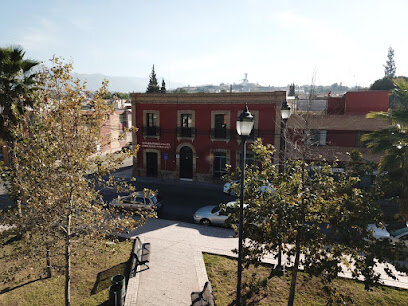Best Water Law Lawyers in Saltillo
Share your needs with us, get contacted by law firms.
Free. Takes 2 min.
List of the best lawyers in Saltillo, Mexico
About Water Law in Saltillo, Mexico
Water Law in Saltillo, Mexico is governed by a framework of federal, state, and municipal regulations that address the management, distribution, and conservation of water resources. These laws are designed to ensure the sustainable use of water, protect the rights of water users, regulate wastewater discharge, and establish guidelines for water allocation in urban, industrial, and agricultural contexts. Key legal instruments include the National Water Law (Ley de Aguas Nacionales), complemented by local provisions and specific municipal ordinances in Saltillo. Given Saltillo's semi-arid climate and growing population, water-related legal matters are of significant importance for both individuals and businesses.
Why You May Need a Lawyer
Legal assistance in Water Law may be required in a variety of situations in Saltillo. Common scenarios include disputes over water rights or access, problems related to water service interruptions or quality, regulatory compliance for businesses and industries, claims for environmental damage or contamination, and administrative procedures involving permits for water usage or wastewater discharge. A lawyer with expertise in Water Law can help navigate complex regulations, represent clients in negotiations with authorities, resolve conflicts with neighbors or government entities, and ensure clients' legal interests are protected.
Local Laws Overview
In Saltillo, water regulations are shaped primarily by the federal Ley de Aguas Nacionales, enforced by the Comisión Nacional del Agua (CONAGUA), and the respective state and municipal water laws. Local authorities such as Aguas de Saltillo (Agsal) oversee water distribution, supply, billing, and conservation efforts within the city. Notable aspects of local Water Law include:
- Requirements for permits to extract groundwater and use surface water bodies.
- Regulations on wastewater treatment, disposal, and sanctions for contaminating public water sources.
- Rules establishing the rights and obligations of users, including domestic, commercial, and agricultural users.
- Policies for water rationing in times of scarcity and protocols for responding to drought conditions.
- Local fees and tariffs for water supply and sewerage services.
- Municipal initiatives for water conservation and public awareness campaigns.
- Enforcement actions and penalties for illegal water tapping or unauthorized use.
Frequently Asked Questions
What rights do I have to access water in Saltillo?
Everyone in Saltillo has the right to access water for personal and household use, but water allocation and delivery are regulated by local authorities. Access may depend on compliance with tariffs and legal guidelines.
How can I obtain a permit to use groundwater or wells?
Permits for groundwater extraction must be requested through the federal authority (CONAGUA) and the process involves environmental evaluations and justification of the intended use.
What should I do if I receive contaminated water at home?
Contact your local water provider (Agsal) immediately to report the issue and document the problem with photos or samples. Legal actions may be pursued with the help of a lawyer if the issue is unresolved.
Can a neighbor divert or use water from a river or creek near my property?
No, the use of surface water is regulated and requires official permits. Unauthorized diversion is illegal and subject to fines or legal action.
Are there penalties for wasting water or not paying my bill?
Yes, local authorities enforce penalties for wasting water and failure to pay may result in service interruption or legal proceedings to recover the debt.
How are water rates determined in Saltillo?
Rates are set by local water authorities based on usage type, consumption volume, infrastructure costs, and conservation policies.
What legal options are available if my property floods due to poor municipal drainage?
You may file a claim with local authorities and seek compensation for damages. If the issue persists, a lawyer can help pursue additional legal remedies.
How does the law protect against over-extraction of water by industries?
Strict licensing, regular inspections, and environmental compliance requirements are in place to monitor industrial water use, with penalties for violations.
What is the process for resolving water disputes with neighbors or authorities?
Disputes can often be addressed through negotiation or mediation, but formal complaints may be filed with municipal agencies or resolved in civil courts if necessary.
Who regulates and supervises the water supply in Saltillo?
Agsal manages municipal services, while CONAGUA oversees federal water resources. Additional oversight may involve state environmental agencies.
Additional Resources
- Comisión Nacional del Agua (CONAGUA) - Federal agency responsible for water management, permits, and regulations. - Aguas de Saltillo (Agsal) - Local water utility handling supply and billing in Saltillo. - Secretaría de Medio Ambiente del Estado de Coahuila - State environmental body involved in resource management. - Local Public Defender or Ombudsman (Defensoría Pública or Procuraduría de los Derechos Humanos de Coahuila) - Offers support for rights violations. - Environmental advocacy groups, such as Pronatura Noreste, can provide guidance and support on conservation and legal matters.
Next Steps
If you are facing a situation related to Water Law in Saltillo, gather all relevant documents such as property deeds, permits, bills, and written communications. Document any issues with photographs or expert reports when possible. Consider scheduling a consultation with a qualified lawyer specialized in Water Law or environmental law in Saltillo. A legal professional can assess your specific case, explain your rights and obligations, and help you understand or navigate administrative and judicial processes. When contacting authorities or service providers, keep records of your interactions. If the matter involves public authorities, you may also seek guidance from municipal or state human rights agencies or specialized public defenders.
Lawzana helps you find the best lawyers and law firms in Saltillo through a curated and pre-screened list of qualified legal professionals. Our platform offers rankings and detailed profiles of attorneys and law firms, allowing you to compare based on practice areas, including Water Law, experience, and client feedback.
Each profile includes a description of the firm's areas of practice, client reviews, team members and partners, year of establishment, spoken languages, office locations, contact information, social media presence, and any published articles or resources. Most firms on our platform speak English and are experienced in both local and international legal matters.
Get a quote from top-rated law firms in Saltillo, Mexico — quickly, securely, and without unnecessary hassle.
Disclaimer:
The information provided on this page is for general informational purposes only and does not constitute legal advice. While we strive to ensure the accuracy and relevance of the content, legal information may change over time, and interpretations of the law can vary. You should always consult with a qualified legal professional for advice specific to your situation.
We disclaim all liability for actions taken or not taken based on the content of this page. If you believe any information is incorrect or outdated, please contact us, and we will review and update it where appropriate.










